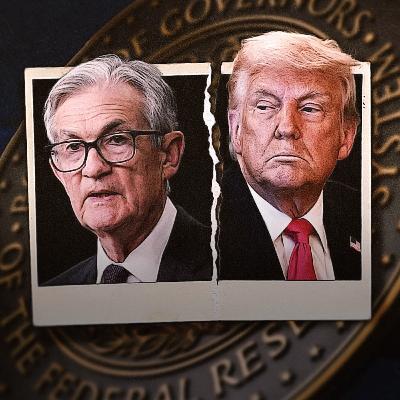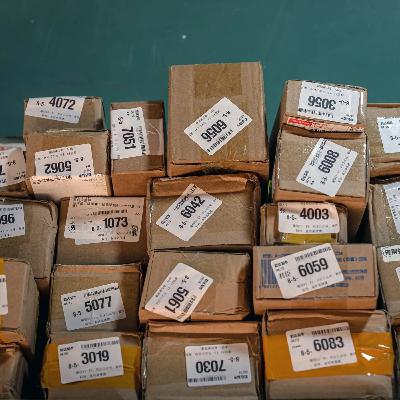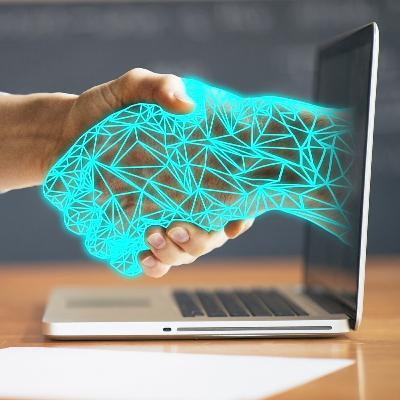Discover Here's Why
Here's Why

Here's Why
Author: Bloomberg
Subscribed: 1,469Played: 37,612Subscribe
Share
2025 iHeartMedia, Inc. © Any use of this intellectual property for text and data mining or computational analysis including as training material for artificial intelligence systems is strictly prohibited without express written consent from iHeartMedia
Description
Here's Why: Where we explain one news story in just a few minutes with help from our experts at Bloomberg.
343 Episodes
Reverse
Despite hitting repeated record highs, US stock indexes have actually underperformed markets elsewhere in 2025. Our Senior Equity Strategist Michael Msika joins Stephen Carroll to discuss what drove this trend, and the expectations for 2026.See omnystudio.com/listener for privacy information.
Prediction markets, platforms where people bet against one another on the outcomes of real-world events, are growing rapidly. The likes of Polymarket and Kalshi now collectively handle billions of dollars in bets every week. These markets have blurred the lines between gambling and trading, and their growth has been helped by a relaxed regulatory environment under US President Donald Trump. Our digital finance reporter Emily Nicolle joins Stephen Carroll to discuss.See omnystudio.com/listener for privacy information.
China is drawing lessons from the Trump administration’s still unfinished “peace plan” for Russia and Ukraine. President Xi Jinping is using the opportunity to sharpen the lines around his long-declared objective of unification with Taiwan. Bloomberg Opinion columnist Karishma Vaswani joins Stephen Carroll to discuss. You can read her latest piece on the topic here: Is China Preparing an Ukraine-Style Plan for Taiwan?See omnystudio.com/listener for privacy information.
Oil prices have been falling as this year looks set to end with the first supply glut since 2020. While lower prices benefit some, they're not good news for everyone. Bloomberg's Oil Strategist Julian Lee joins Caroline Hepker to explain.See omnystudio.com/listener for privacy information.
The world's biggest tech firms are pouring hundreds of billions of dollars into artificial intelligence. Those building AI technology are predicting massive growth. Despite all the bullish sentiment, some investors are still worried about future costs. Bloomberg Tech Europe anchor Tom Mackenzie joins Stephen Carroll to discuss.See omnystudio.com/listener for privacy information.
The US economy is growing, but Americans are feeling gloomy about it. Democratic candidates who campaigned on pocketbook issues won by big margins in Virginia and New Jersey governors’ races — so how will the parties play this issue ahead of the midterms? Our Managing Editor for US Economy and Government Mario Parker joins Stephen Carroll to discuss.See omnystudio.com/listener for privacy information.
US President Donald Trump began his second term in office by promising to be a peacemaker and keep the United States out of foreign conflicts. Since then, he has ramped up threats of military intervention abroad, from the Middle East to Venezuela. Our head of economics and government coverage across Europe, the Middle East, Africa and Latin America, Flavia Krause-Jackson, joins Stephen Carroll to discuss.See omnystudio.com/listener for privacy information.
The Trump administration demolished the East Wing of the White House in order to make space for a new 90,000-square-foot ballroom. The demolition surprised historians and architects who didn't realize the most prominent civic building in the US could be altered so dramatically without public discussion. Kriston Capps from Bloomberg CityLab joins Stephen Carroll to discuss.See omnystudio.com/listener for privacy information.
The European Union has agreed plans to ban all gas supplies from Russia by the end of 2027. Weaning European countries off Russian supplies has been a complex, and sometimes painfully slow, process. Our EU energy reporter John Ainger joins Stephen Carroll to discuss.See omnystudio.com/listener for privacy information.
China's top policymakers are finalizing their next five-year plan for the country, for the period from 2026-2030. It's a blueprint for economic and social development at a time when Beijing is facing a myriad of challenges at home and abroad. Jenni Marsh, who leads Bloomberg's team covering China's economics and government, joins host Stephen Carroll to discuss.See omnystudio.com/listener for privacy information.
Some of the world's wealthiest countries are struggling with debts higher than their own GDP, and it's upending their politics. Governments in France, the UK, the US and elsewhere are having to balance rising interest payments with demands for more investment, welfare or security. Bloomberg's Head of Economics and Government Stephanie Flanders joins host Stephen Carroll to discuss.See omnystudio.com/listener for privacy information.
It's been a great six months for US stock markets, despite turbulence from tariffs and geopolitical tensions. Economic data continues to surprise to the upside. The Federal Reserve has extended a fresh lifeline to Wall Street. But beneath that surface, there are some signs of a shift in investor sentiment. Our Markets Live Managing Editor Kristine Aquino joins host Stephen Carroll to discuss.See omnystudio.com/listener for privacy information.
A small toy monster with a toothy grin, known as a Labubu doll, has taken the world by storm, adorning the bags of millions of consumers — including popstar Rihanna and tennis champion Naomi Osaka. Some editions fetch thousands of dollars on resale, and Pop Mart, the Chinese maker of the toys, saw revenue jump over 200% in the first half of the year. But our Asia Global Business Managing Editor Rachel Chang joins Caroline Hepker to discuss how the modern toy trend started, and if it can continue.See omnystudio.com/listener for privacy information.
Recent incursions by Russian drones into NATO airspace had caused alarm across Europe, and triggered a military response from Poland. EU Commission President Ursula von der Leyen has promised a 'drone wall' along its eastern border - but what would it take to build more effective defenses? Our Global Defense Editor Gerry Doyle joins host Stephen Carroll to discuss.See omnystudio.com/listener for privacy information.
President Trump has never failed to hide his dislike for wind farms. He says they massacre birds, cause cancer, and drive whales crazy. But now his attack on renewable power is reshaping the US energy landscape, jeopardizing thousands of jobs, and billions in investment. His administration is stopping wind farms and solar projects, revoking permits, and making every effort to reverse President Biden's green agenda. Rachel Morison, who leads Bloomberg's, Power, Gas, and Renewables Coverage in Europe joins host Caroline Hepker to discussSee omnystudio.com/listener for privacy information.
Donald Trump has never hidden his frustration with the Federal Reserve — and now, back in the White House, his attacks have only intensified. From insults directed at Chair Jerome Powell to threats against Fed Governor Lisa Cook, the president is waging an extraordinary campaign to push the central bank into cutting interest rates.It’s a striking challenge to central bank independence in the world’s largest economy. But could Trump’s unconventional pressure actually work?Bloomberg White House correspondent Catherine Lucey joins host Stephen Carroll to break down what’s at stake for the Fed, financial markets, and the future of US economic policy.See omnystudio.com/listener for privacy information.
The loophole that has allowed packages worth less than $800 to enter the United States tariff-free has ended after nearly 90 years. It's a major change for small businesses, shippers and consumers, and several European postal services have suspended deliveries of parcels to the US as a result. Our Trade Tsar Brendan Murray joins host Stephen Carroll to discuss the ramifications.See omnystudio.com/listener for privacy information.
China’s property market has been in a downward spiral for five years, with little sign of the crisis abating. Even after the collapse of real estate giant Evergrande, values are continuing to plummet. Households in financial distress are being forced to sell properties, and apartment developers that racked up enormous debt on speculative projects are on the brink of collapse. Lulu Chen, who leads our team covering Asian real estate, joins host Stephen Carroll to discuss.See omnystudio.com/listener for privacy information.
A growing body of research is pointing to the drastic changes artificial intelligence will bring to the workforce, with predictions of millions of jobs being created and lost. According to analysis of recent US labor market data, AI does not appear to be causing a slowdown in hiring. Many companies are racing to implement the new tech into their businesses, but are they employing fewer people as a result? Bloomberg Opinion columnist Parmy Olson joins host Stephen Carroll to discuss.See omnystudio.com/listener for privacy information.
The world's biggest technology companies have reported another period of strong earnings, adding to the recent rally in their share prices. Microsoft became only the second company to reach a $4 trillion valuation. Some market watchers are concerned that the valuations of the so-called Magnificent Seven companies are looking stretched. Gina Martin Adams, Chief Equity Strategist at Bloomberg Intelligence, joins host Stephen Carroll to discuss.See omnystudio.com/listener for privacy information.












